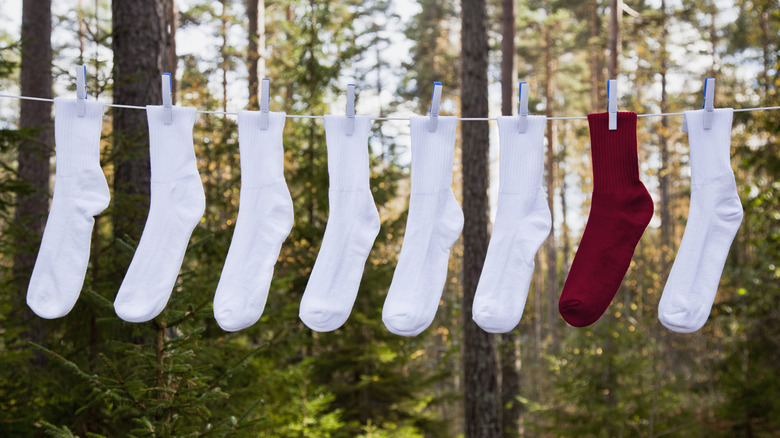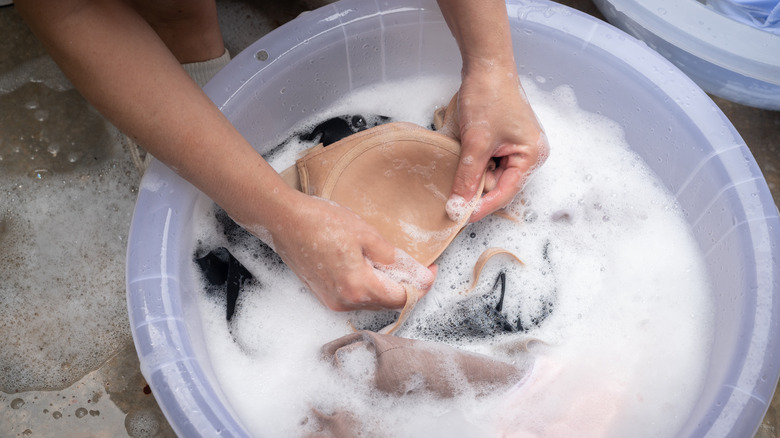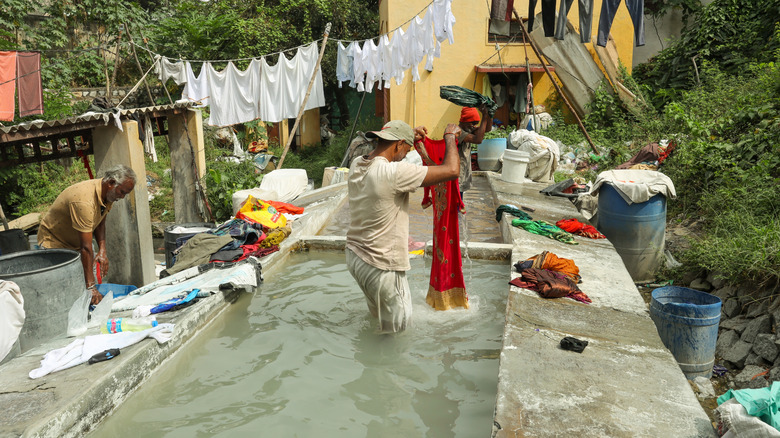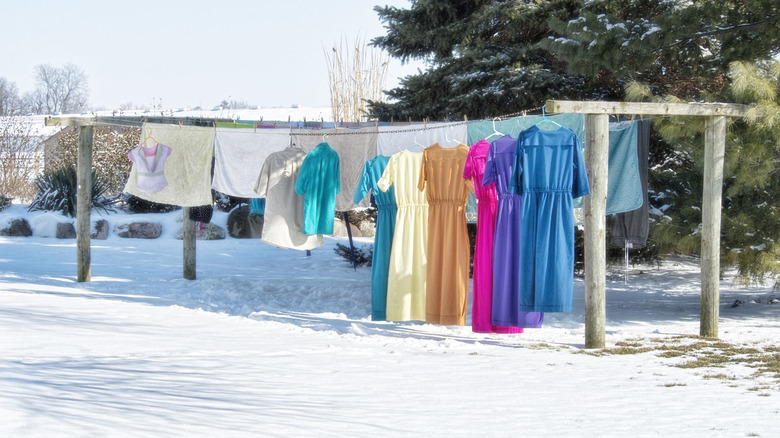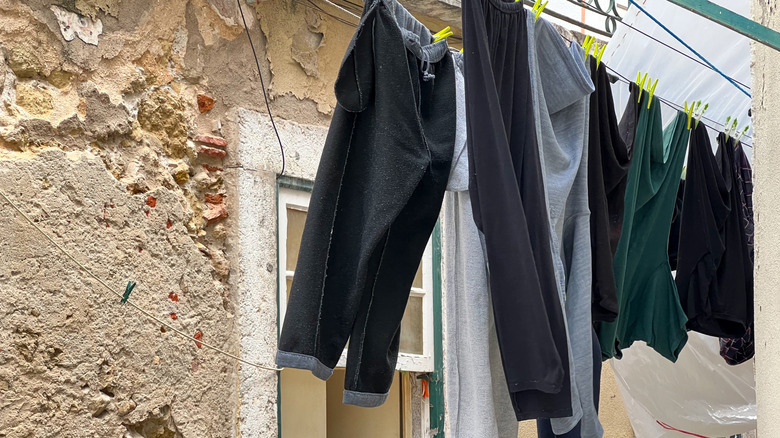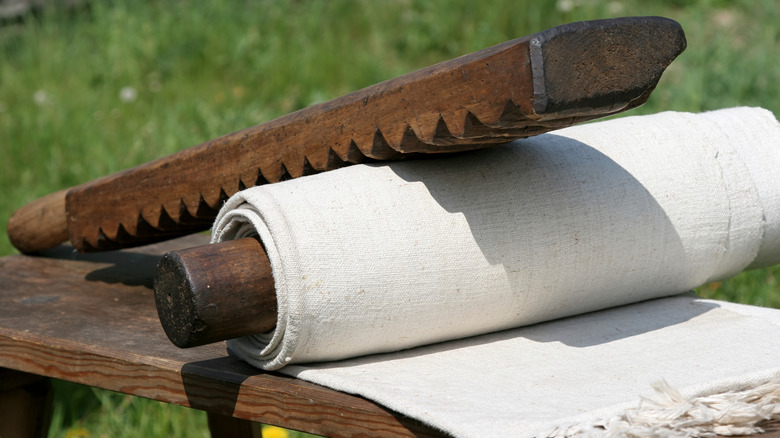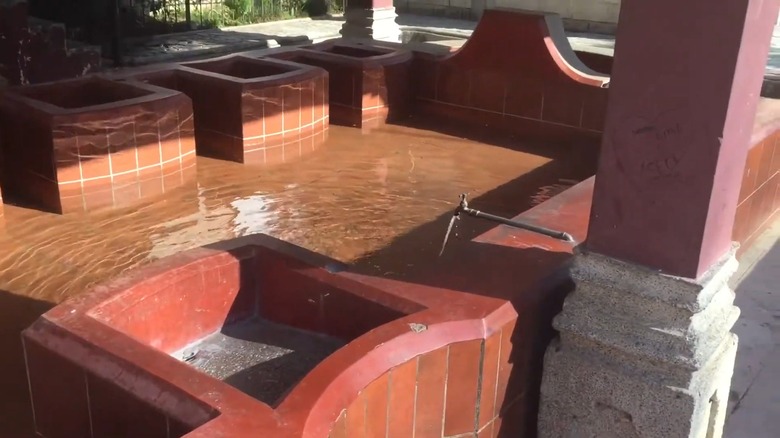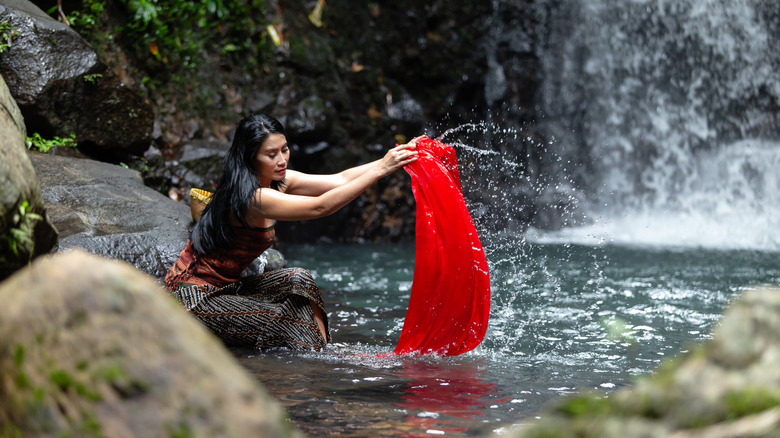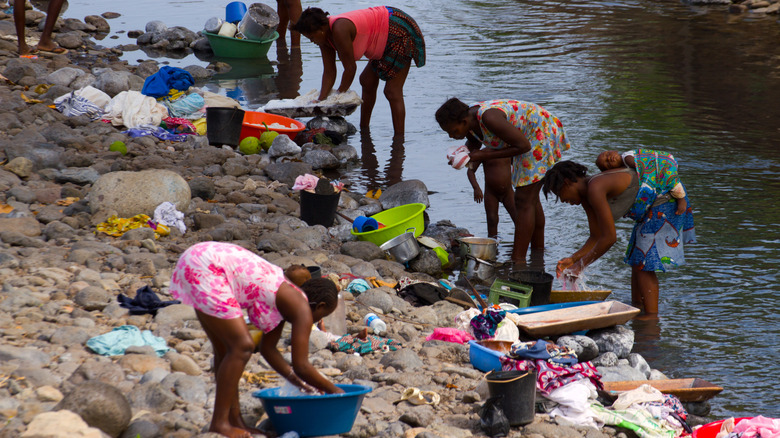10 Laundry Practices From Around The World To Try (And Which Are Best To Skip)
Gathering dirty clothes from various nooks and crannies, putting them in a hamper, and following a few important steps before starting a load of laundry for the week might be your version of laundry day. But have you ever wondered how the rest of the world washes their laundry, the customs they follow, and whether their practices hold merit? If yes, we've rounded up the 10 laundry practices from around the globe to try and a few that're good to know but must be skipped. For instance, Indians tend to wash their dirty laundry every day instead of dropping a heavy load for a few days in one go.
Another surprising fact is the Chinese avoid doing their laundry on the first two days of the new year, or they'll court bad fortune. That's not all. The Japanese use cold water to wash their laundry, while the Europeans don't mind airing their laundry (pun intended) for all to see. Excited to learn more about the way people around the world do their laundry? Here's a look at the most common laundry practices from varied corners of the Earth. We'll also highlight reasons you should try or avoid these practices the next time you wash your garments.
Try: China: Separating undergarments and socks from the rest of the laundry
Do you chuck all your dirty laundry, including your undergarments and socks, into the washer indiscriminately? Well, the Chinese have news for you. They separate their undergarments, such as bras, panties, and boxers, and dirty socks from the rest of their laundry before dropping a load in the washing machine. Their logic is simple: the underclothes are dirtier than the outer ones, so they should be washed separately. But this doesn't mean that they wash socks and undergarments together. After all, socks carry a multitude of germs, like athlete foot-causing bacteria and infection-causing fungi. So, moving forward, try to handwash your unmentionables and socks to keep the bacteria contained.
Try: Philippines: Hand washing dirty laundry
While Filipinos are no stranger to the wonders of a washing machine, they're too expensive for the general public. In fact, a mere 49.2% of the population owns one (via Statista). So, they fill their buckets and tubs with detergent and water, soak the clothes in the soapy solution, and scrub them by hand. Though you might not be inclined to give up your trusty washer yet, hand washing your clothes is an eco-friendly alternative. Plus, it'll save your clothes from the washer's violent agitation. This is especially important for embellished garments and fabrics, such as wool, cashmere, and silk.
Try: India: Communal laundry practices
India boasts of the largest laundromat in the world: the Mahalaxmi Dhobi Ghat in Mumbai. Here, approximately 10,000 washermen and women work relentlessly to clean their clients' dirty garments. In certain villages, the women of a household gather together at their local well, stream, or brook to wash their laundry. While different, both of these practices have community and collaboration at the core. So, if you dislike doing your laundry all alone, try doing it with your friends and family. Maybe the sense of belonging and community will turn this chore into your favorite.
Try: Iceland: Drying washed clothes on a rack
If you experience cold weather for the better part of the year and rely on your clothes dryer to dry your washed garments, you might want to try the Icelanders' trick. This is especially important if you're constantly looking for ways to reduce your energy costs at home. The majority of Icelanders rely on clothes racks to dry their laundry. This is not to say that they don't know what a dryer is. They do, but not everyone owns them and it can take a while at the laundromat. Plus, the cold, dry air refreshes the clothes and helps the water evaporate faster.
Try: Middle East: Air drying clothes via the arid desert air
Air-drying clothes isn't just prevalent in the cold island country. It's also popular amongst the dwellers in the Middle East. They tie sturdy clotheslines along their balcony or yard and hang their wet clothes on them. The arid desert air and the shining sun take care of the rest. Moreover, this practice is common among Europeans. Besides being cost-effective, the sun's rays help kill the lingering germs in your garments. However, before you string a line in your yard, check your HOA's guidelines.
Try: Sweden: Using mangle board to remove water and wrinkles from wet clothes
A mangle, mangling, or smoothing board is used by Swedes to remove excess water from washed clothes and remove wrinkles. This device features a wooden board made of oak, pine, or beech trees and a rolling pin. The wet clothes are tightly wrapped around the thick roller, and the carved board is then pushed against it to wring the moisture out. Besides drying clothes, it also doubles as a no-electricity iron, so you might want to keep one handy for unforeseen circumstances.
Try: Japan: Washing clothes in cold water
Memorizing the laundry water temperature guide will save you a lot of deliberation and trials-and-errors while washing clothes. But if you don't want to adjust the setting every time you run a load, do what the Japanese do: wash clothes in cold water. This is because most of the washing machines in Japan are programmed for cold water only. If you adopt this practice, you won't have to worry about shrinkage. Plus, running a cold wash saves energy and prevents color bleeding. It's also best to treat stubborn stains, like sweat and blood.
Try: Germany: Not washing clothes on leisure days and in the middle of the night
If you want to resemble a lazy panda on Sundays and avoid the pile of clothes glaring at you from the corner of your room, try practicing Germany's "Ruhezeit" law. Also known as the quiet hours, the Germans are forbidden from creating a ruckus during certain times of the week. It extends between 10 p.m. and 6 a.m. on weekdays and Saturdays and the entire day on Sundays. Public holidays fall in the same category. So, give yourself some grace on your days off and start doing your laundry during the day (or weekdays if you only get time during the night).
Try: North America: Self-service laundromats
While the majority of households in the U.S. own a washing machine, things get tricky for people living in small or studio apartments or a mobile home. So, they either use the common laundry room in their building, like Penny and Sheldon from "The Big Bang Theory." Or, they go to self-service laundromats, wherein they have to pay money to use the washer and dryer. With over 17,000 laundromats in America (per data from IBISWorld), they're still an important part of the culture and offer people opportunities to unwind and make new friends. So, if you have one nearby, master how to do your laundry at a laundromat.
Try: Singapore: Using a professional laundry service to clean dirty clothes
Are you pressed for time and don't have the luxury to take care of your dirty laundry (no pun intended)? You might like the way some Singaporeans outsource their laundry. They simply find a reliable service and drop off their soiled garments with them. At the designated pick-up time, they collect their clean laundry and go their merry way. At-home services are available, too. Although it can be expensive to use a professional service regularly, it's a good choice for individuals with a fast-paced lifestyle and a wardrobe full of designer clothes.
Maybe: Guatemala: Washing clothes in a 'pila'
Though a few households own a washer in Guatemala, most stick with the traditional 'pila' to wash their clothes. This is mostly because of the exorbitant import charges on washing machines and limited knowledge regarding them. A 'pila' is a concrete or plastic structure with three slots, one for washing clothes, one for fresh water, and the other for wringing clothes or doing the dishes. Guatemalans use the public washing areas to connect with their community or have a 'pila' installed in their homes for convenience. You might want to try this laundry practice if access to fresh water is an issue.
Skip: Morocco: Washing clothes in waterfalls
People living in certain towns in Morocco have taken to washing clothes in waterfalls due to a lack of plumbing. For instance, Sundays are reserved for doing laundry at the Ras el Maa waterfall in Chefchaouen. Although washing garments this way allows people to engage with each other and form connections, it's detrimental to the natural waterbody's health. The dirt and grime from the dirty clothes gets added to the clean and refreshing water. Plus, the detergents and soaps (even the biodegradable kind) have an adverse impact on the living beings who consume the contaminated water.
Skip: Parts of Africa: Washing laundry by the river
In South Africa, water is a scarce commodity. With a good chunk of the rural residents without ready access to clean water, they make do with what they have available. As such, people wash their clothes in nearby rivers in certain parts of the country. For instance, the Niger River is a popular spot for the locals to congregate and clean their soiled garments. However, this is a bad idea due to multiple reasons. For starters, dirty river water will lead to dirtier clothes and infections. Moreover, the microfibers from the clothes are the key cause of harmful microplastics in the ocean.

